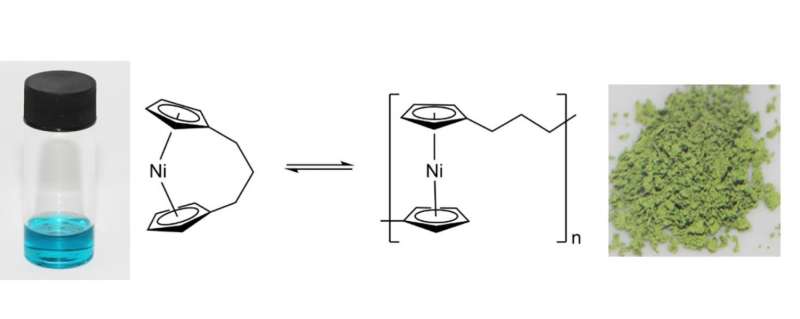Creation of highly magnetic material could improve computer technologies

Scientists, led by Professor Ian Manners from the University of Bristol's School of Chemistry, have developed a facile route to a highly magnetic material that could provide fundamental improvements to the performance of current computer technologies.
Polymers, or plastics, which feature metal atoms in their structure have been a focus of much research in recent decades, and have found application in self-healing materials, photovoltaic technology, and information storage.
Metal sandwich complexes, commonly termed 'metallocenes' have also been incorporated into polymeric materials - most commonly using iron.
Now, researchers from the University of Bristol, together with colleagues from the University of Oxford have created a polymer in which nickel (as 'nickelocene' units) is built into the structure, affording a bright green, highly magnetic material.
The study's first author Rebecca Musgrave said: "Remarkably, we also have the ability to create and destroy this dynamic magnetic polymer using only changes in temperature (via a process called depolymerisation).
"Most materials with cooperative magnetic properties are insoluble or difficult to process, and this nickel-based polymer is a rare example of a readily accessible, easily handled, soluble magnetic polymer."
The interesting electronic and magnetic properties of this polymer will continue to be explored, with the aim of making highly magnetic materials for use in data storage applications, key to improving the performance of current computer technologies.
The study is published in Nature Chemistry.
More information: 'Main-chain metallopolymers at the static-dynamic boundary based on nickelocene' by R. A. Musgrave, A. D. Russell, D. W. Hayward, G. R. Whittell, P. G. Lawrence, P. J. Gates, J. C. Green and I. Manners, Nature Chemistry. nature.com/articles/doi:10.1038/nchem.2743
Journal information: Nature Chemistry
Provided by University of Bristol



















